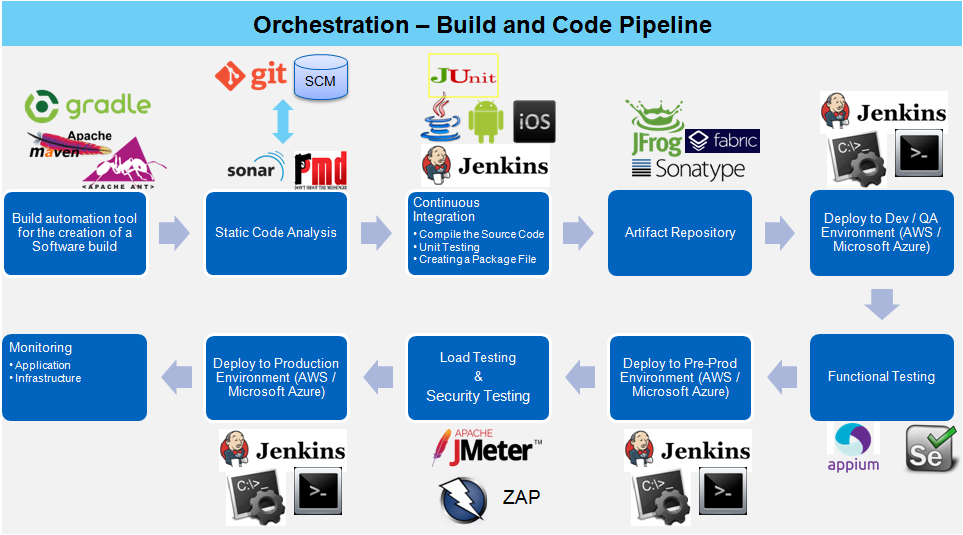Yes, tools are nothing. They are not that important a factor in changing the culture of any organization. The reason is very simple. No matter what technology we use, we will perform continuous integration, cloud provisioning, configuration management, continuous delivery, continuous deployment, continuous monitoring, and so on.
Categorywise, different tool sets can be used, but all perform similar operations. It is just the way that tool performs a certain operation that differs, else the outcome is the same. The following are some of the tools based on the categories:
|
Category |
Tools |
|
Build automation |
Nant, MSBuild, Maven, Ant and Gradle |
|
Repository |
Git and SVN |
|
Static code analysis |
Sonar and PMD |
|
Continuous integration |
Jenkins, Atlassian Bamboo, and VSTS |
|
Configuration management |
Chef, Puppet, Ansible, and Salt |
|
Cloud platforms |
AWS and Microsoft Azure |
|
Cloud management tool |
RightScale |
|
Application deployment |
Shell Scripts and Plugins |
|
Functional testing |
Selenium and Appium |
|
Load testing |
Apache Jmeter |
|
Repositories |
Artifactory, Nexus, and Fabric |
Let's see how different tools can be useful in different stages for different operations. This may change based on the number of environments or the number of DevOps practices we follow in different organizations:

If we need to categorize tools based on different DevOps best practices, then we can categorize them based on open source and commercial categories. The following are just some examples:
|
Components |
Open Source |
IBM Urban Code |
Electric-Cloud |
|
Build tools |
Ant or Maven |
Ant or Maven or MS |
Ant or Maven or MS Build |
|
Code repositories |
Git or Subversion |
Git or Atlassian Stash or Subversion or StarTeam |
Git or Subversion or StarTeam |
|
Code analysis tools |
Sonar |
Sonar |
Sonar |
|
Continuous integration |
Jenkins |
Jenkins or Atlassian Bamboo |
Jenkins or ElectricAccelerator |
|
Continuous delivery |
Chef |
Artifactory and IBM UrbanCode Deploy |
ElectricFlow |
In this book, we will try to focus on the open source category, as well as commercial tools. We will use Jenkins and Visual Studio Team Services for all the major automation and orchestration-related activities.



